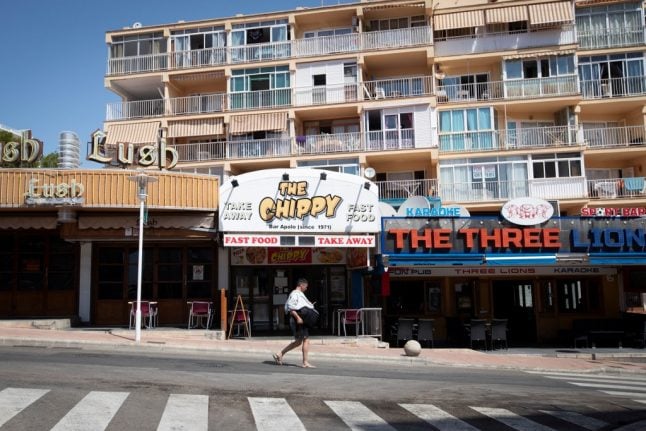Concerned many tourists are not respecting social distancing guidelines, authorities elected to close the venues on the Platja de Palma strip in the capital Palma and Magaluf, a favoured haunt with young booze-fuelled Britons.
One of Europe's hardest-hit nations with almost 30,000 deaths, Spain last month exited one of the globe's toughest virus lockdowns.
But as the summer season starts to take off authorities on the island feared matters could get out of hand unless they took tough action.
Earlier this week, Germany's health minister had expressed concern after hundreds of German tourists were seen partying on the island without masks or keeping a safe distance, fuelling fears of another coronavirus wave.
Local media on the Spanish island voiced outrage after video footage showed mainly German holidaymakers carousing outside bars and terraces on Friday evening, leading the German-language Mallorca Zeitung to note “it was as if no one had ever heard of the corona pandemic”.
The regional government last week had already announced hefty fines for those caught organising illegal parties or flouting rules on social distancing and face masks.
“We do not want uncivil tourists on our islands,” said regional tourism minister Iago Negueruela.
Negueruela warned that if the tourists simply took their boorish behaviour elsewhere then the crackdown would simply be widened.
Authorities in the Balearic Islands off Spain's eastern coast say they need to protect public health even as summer tourism, on which some 200,000 local jobs depend, begins to ramp up.



 Please whitelist us to continue reading.
Please whitelist us to continue reading.
Member comments